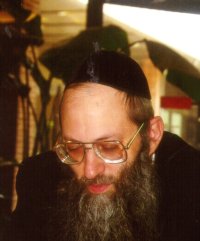
Jewish Laws on Deaf Issues
Personal Background And Family Life
Meet Rabbi Mordechai Shuchatowitz…born in Brockton, Massachusetts the son of an educator who traveled around to many cities and states developing Jewish Day Schools. Years passed and the family settled in Baltimore, Maryland where Mordechai currently lives with his wife and his children. About seventeen years ago, the first of his four hearing impaired children was born. Thus, Rabbi Shuchatowitz took on a personal interest and started networking with others within the Deaf World. As a student of Ner Israel Rabbinic College Kollel, Mordechai began researching the Halachat pursuits of Jewish legal interests relating to the Jewish Deaf community. Mordechai spent countless hours researching, forming discussion groups and parent meetings to discuss his concerns and findings.
Publications
In the early 90’s, Rabbi Shuchatowitz presented his findings on practical halachic positions to Rabbi Eliezer Lederfeind, founder of “Our Way”. Our Way found the information extremely informative and relevant and published the articles on Halacha. The publication, which gained national exposure, caused the general Torah community to open their eyes and opened the door to questions many had.
Issues Regarding Jewish Law and The Deaf
The issues addressed are the use of hearing aids on Shabbos, spoken Mitzvos and the Jewish Deaf, Shofar blowing and the Hearing Impaired and the Jewish Deaf in the Synagogue “Minyon”. Hearing the sound of the Shofar with its original sound is required as a fulfillment of the Mitzvot. Amplified sound reproduces sound to electronic speakers and the sound is then a copy. The sound of the shofar reaches between 100-110 decibels, three times that of ordinary speech. Therefore, anyone capable of hearing the sound of the shofar without the use of the hearing aid fulfills the mitzvah. According to Rabbi Shuchatowitz, people with moderate to severe hearing loss should still attend shul. “Shofar blowing in itself may not be feasible, but by being included with everyone else will be a merit towards all and those will be blessed for a good year!” The issue of the use of hearing aids on Shabbos touches upon the fact that it is an electronic device and guide lines must be followed. Aids should be set prior to the beginning of Shabbat. If the volume of the hearing aid needs adjustment, that is permitted. However if the aid needs a change of battery, a non-Jew must assist. Guidelines for the use of updated contemporary aids such as analog and cochlear implants are still to come.
Past To Present
Traditionally, deaf people were not considered part of the Jewish community for they lacked the ability to become involved. They were unable to follow along, communicate ideas nor exchange information. Back during the Civil War years, Ksav Sofer, son of Chasom Sofer leader of Austrian Jewry in the early 19th century, visited the Jewish Institute of the Deaf in Austria. There he saw the first communication with the Deaf via sign language. Upon this observation, Ksav Sofer purchased Tefillin for all of the young boys present. He saw that the kids were in fact intelligent and educable. They needed to be included with the Jewish customs and laws. Although, not Universal, this movement took a strong precedent and all were to be included.
Future Goals
His future goals are to research contemporary developments such as the use of sign language interpreters in the ceremonial setting, the progression of digital aids and to expand the discussion of the deaf mute status among religious law.
For More Information
Rabbi Shuchatowitz’s research makes it practical for the Jewish Deaf to comply with the Halacha. The research was done through recognized authorities and has become very well accepted. The research of his findings is constantly evolving and hits home to many. For more information, Rabbi Shuchatowitz, 6206 Lincoln Avenue, Baltimore, MD 410.764.2372 or email [email protected].





